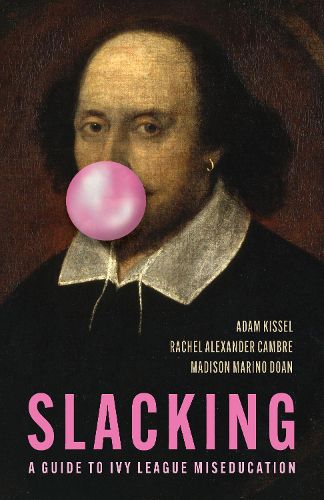Readings Newsletter
Become a Readings Member to make your shopping experience even easier.
Sign in or sign up for free!
You’re not far away from qualifying for FREE standard shipping within Australia
You’ve qualified for FREE standard shipping within Australia
The cart is loading…






Prestige no longer ensures substance at Ivy League schools; students must navigate a maze of shallow, politicized courses to uncover the rare gems of a classical education, exposing the need for academic renewal.
"This book is a banquet of the absurdities that Ivy League universities serve up to their students under the rubric of general education. Anyone who wonders how the graduates of America's elite institutions come by their jaundiced view of our country should start here. The few who refuse to "slack" are limited to the hard sciences and the few remaining excellent courses in the humanities." -Peter Wood, President, National Association of Scholars
Ivy League universities can no longer be trusted to produce well-educated students.Even a cursory review of the course titles at top schools shows that these $320,000-plus diplomas may confer legacy prestige to graduates, but not necessarily knowledge or wisdom.
At Cornell, for example, students can take Queer Girlhood, Beyonce Nation, and Intersectional Disability Studies. The course list at Yale includes Pop Sapphism and Comparative Settler Geographies. At Princeton: Shoes. Penn offers Reality TV and Gender and Decolonizing French Food.Even worse, these courses actually fulfill general education requirements.It is still possible to earn a great education at Princeton, Harvard, Yale, Penn, Columbia, Brown, Cornell, or Dartmouth, but doing so requires prudence and persistence.
In SlackingEvery chapter concludes with two course lists, both of which meet the school's general education requirements. One displays the worst collection of courses that an inveterate "slacker" could take to skate through the requirements for entertainment, reinforcement of political biases, and narrow specialization. The other lists the best choice of courses a dedicated striver could take to acquire a well rounded, content-rich liberal education.
The contrast between the two sounds a rousing alarm bell for curriculum reform at America's best-known colleges.
$9.00 standard shipping within Australia
FREE standard shipping within Australia for orders over $100.00
Express & International shipping calculated at checkout
Prestige no longer ensures substance at Ivy League schools; students must navigate a maze of shallow, politicized courses to uncover the rare gems of a classical education, exposing the need for academic renewal.
"This book is a banquet of the absurdities that Ivy League universities serve up to their students under the rubric of general education. Anyone who wonders how the graduates of America's elite institutions come by their jaundiced view of our country should start here. The few who refuse to "slack" are limited to the hard sciences and the few remaining excellent courses in the humanities." -Peter Wood, President, National Association of Scholars
Ivy League universities can no longer be trusted to produce well-educated students.Even a cursory review of the course titles at top schools shows that these $320,000-plus diplomas may confer legacy prestige to graduates, but not necessarily knowledge or wisdom.
At Cornell, for example, students can take Queer Girlhood, Beyonce Nation, and Intersectional Disability Studies. The course list at Yale includes Pop Sapphism and Comparative Settler Geographies. At Princeton: Shoes. Penn offers Reality TV and Gender and Decolonizing French Food.Even worse, these courses actually fulfill general education requirements.It is still possible to earn a great education at Princeton, Harvard, Yale, Penn, Columbia, Brown, Cornell, or Dartmouth, but doing so requires prudence and persistence.
In SlackingEvery chapter concludes with two course lists, both of which meet the school's general education requirements. One displays the worst collection of courses that an inveterate "slacker" could take to skate through the requirements for entertainment, reinforcement of political biases, and narrow specialization. The other lists the best choice of courses a dedicated striver could take to acquire a well rounded, content-rich liberal education.
The contrast between the two sounds a rousing alarm bell for curriculum reform at America's best-known colleges.